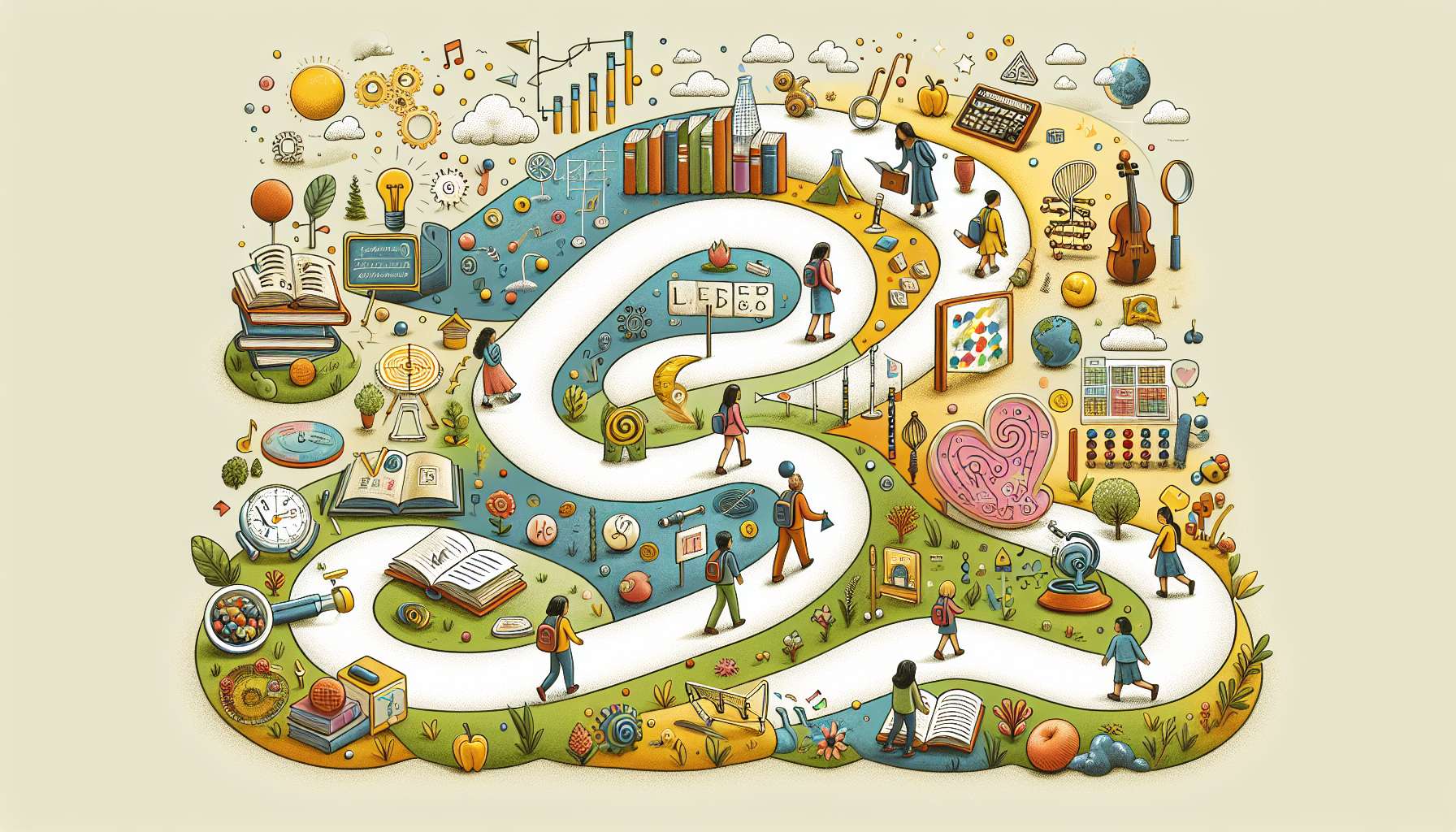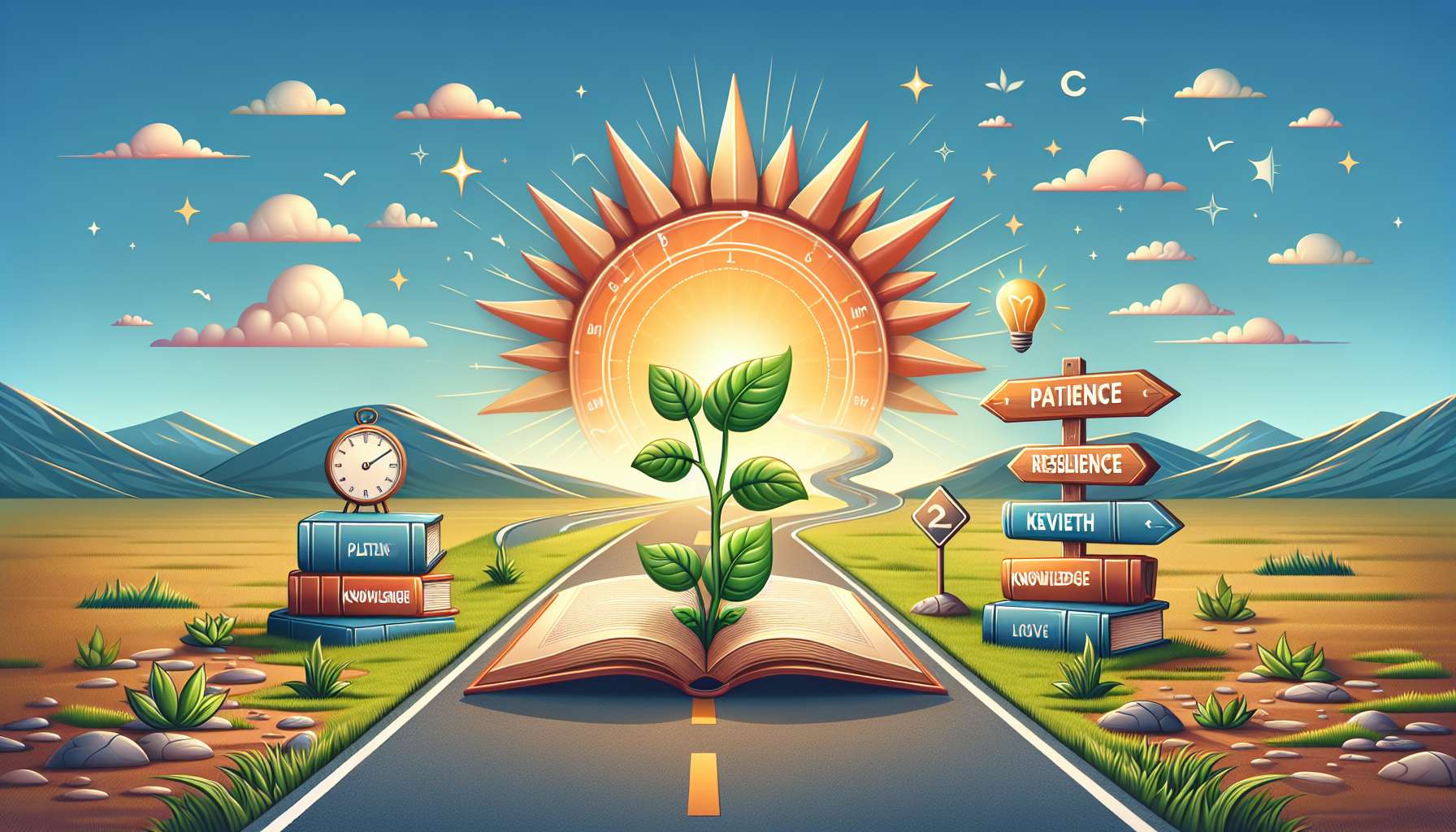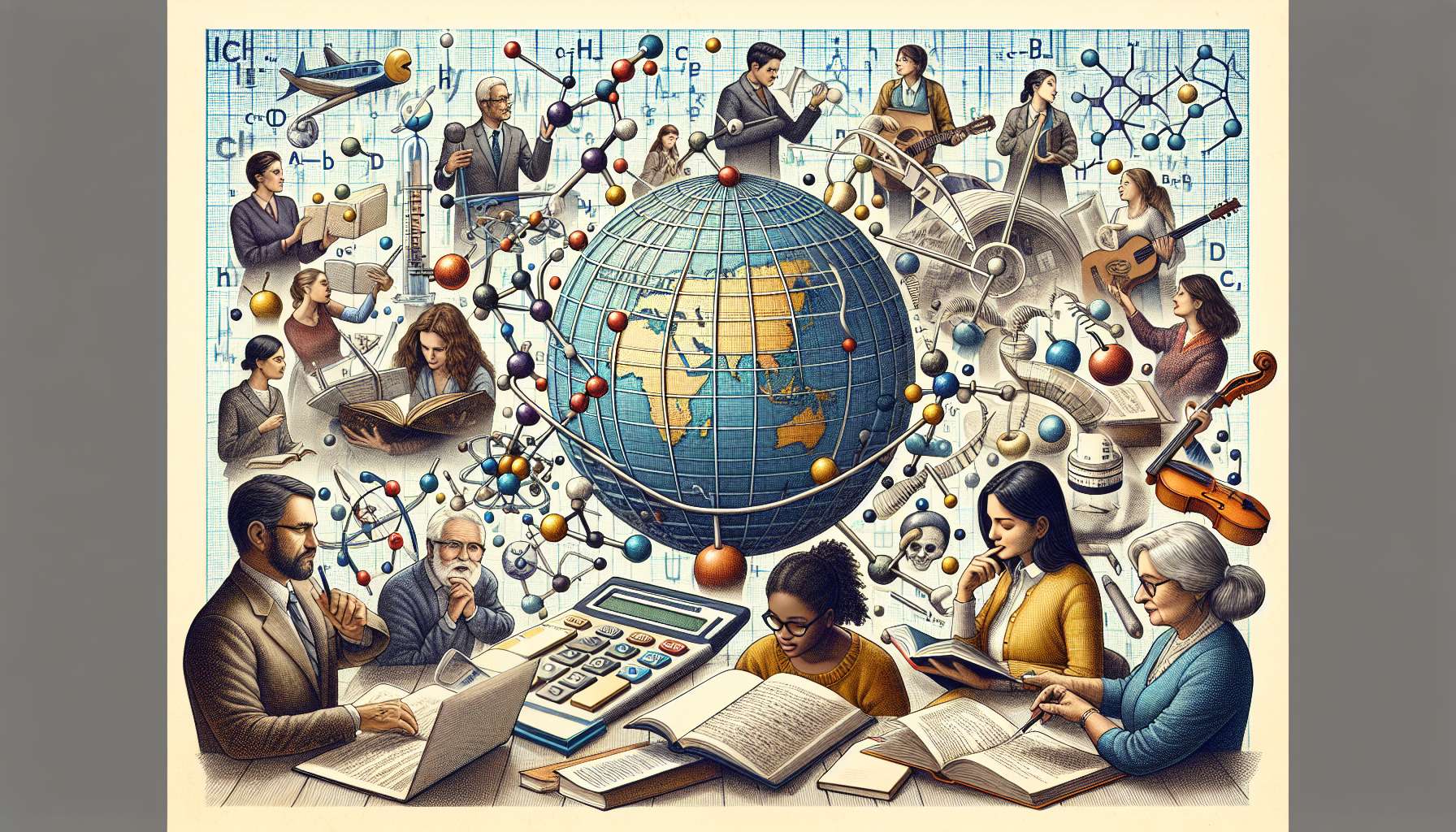Unlocking the Power of Essential Learning Journey
Imagine embarking on a journey of learning that not only equips you with knowledge but also transforms the way you think, act, and perceive the world around you. This is the essence of the Essential Learning Journey a holistic approach to education that goes beyond traditional academic learning to nurture critical thinking, creativity, collaboration, and adaptability.
As we delve into the intricacies of this transformative educational concept, we uncover a treasure trove of insights, experiences, and opportunities that can shape the future of learning and development. From its historical roots to its current applications and future implications, the Essential Learning Journey offers a roadmap for personal growth, innovation, and lifelong learning.
In this article, we will explore the multifaceted dimensions of the Essential Learning Journey, shedding light on its significance, challenges, and potential impact on individuals and society as a whole. Join us on this enlightening exploration as we unravel the secrets of this powerful educational paradigm.
The Evolution of Essential Learning Journey
The concept of the Essential Learning Journey traces its origins back to the progressive educational movements of the 20th century, which emphasized the importance of holistic learning, experiential education, and student-centered approaches. Visionaries such as John Dewey, Maria Montessori, and Howard Gardner were instrumental in shaping the foundations of this transformative educational philosophy.
Essential Learning Journey is not just about acquiring knowledge; it is about developing essential skills and competencies that are crucial for success in the 21st century. These include critical thinking, problem-solving, communication, collaboration, creativity, and digital literacy. By emphasizing these competencies, the Essential Learning Journey equips individuals with the tools they need to thrive in a rapidly changing world.
One of the key principles of the Essential Learning Journey is the integration of real-world experiences and interdisciplinary learning. This approach allows students to apply their knowledge in practical contexts, fostering a deeper understanding of the subject matter and encouraging innovation and creativity. By connecting learning to real-life situations, the Essential Learning Journey makes education more engaging, relevant, and meaningful.
Moreover, the Essential Learning Journey places a strong emphasis on self-directed learning and personal growth. By empowering students to take ownership of their education and pursue their interests and passions, this educational model encourages autonomy, motivation, and lifelong learning. Students are encouraged to set goals, reflect on their progress, and continuously improve their skills and knowledge.

The Core Principles of Essential Learning Journey
At the heart of the Essential Learning Journey are several core principles that guide the educational experience and shape the learning outcomes. These principles are designed to foster a holistic and transformative approach to education, focusing on the development of the whole person intellectually, emotionally, socially, and spiritually.
1. Personalized Learning
Personalized learning is a key tenet of the Essential Learning Journey, as it recognizes that each individual is unique and learns in their own way. By tailoring the learning experience to the needs, interests, and strengths of each student, personalized learning promotes engagement, motivation, and academic success. It allows students to explore their passions, develop their talents, and reach their full potential.
2. Inquiry-Based Learning
Inquiry-based learning is another fundamental aspect of the Essential Learning Journey, as it encourages students to ask questions, seek answers, and think critically about the world around them. By engaging in hands-on, experiential learning activities, students develop their problem-solving skills, creativity, and curiosity. This approach not only deepens their understanding of the subject matter but also fosters a lifelong love of learning.
3. Collaborative Learning
Collaborative learning plays a crucial role in the Essential Learning Journey, as it promotes teamwork, communication, and social skills. By working together on projects, solving problems, and sharing ideas, students learn to appreciate diverse perspectives, respect others’ opinions, and collaborate effectively. Collaborative learning not only enhances academic achievement but also prepares students for success in the workplace and in society.
4. Reflection and Feedback
Reflection and feedback are integral components of the Essential Learning Journey, as they enable students to assess their progress, identify areas for improvement, and set goals for the future. By reflecting on their learning experiences, students gain valuable insights into their strengths and weaknesses, develop self-awareness, and cultivate a growth mindset. Feedback from teachers, peers, and mentors provides valuable guidance and support, helping students to continuously refine their skills and knowledge.
5. Integration of Technology
Technology plays a pivotal role in the Essential Learning Journey, as it provides powerful tools and resources for enhancing the learning experience. From interactive multimedia presentations to online collaborative platforms, technology enables students to access information, communicate with others, and create multimedia projects. By integrating technology into the curriculum, educators can engage students in innovative ways, promote digital literacy, and prepare them for the demands of the digital age.

Challenges and Controversies
While the Essential Learning Journey offers a promising vision of education for the future, it also faces a number of challenges and controversies that must be addressed. One of the main challenges is the resistance to change within traditional educational systems, which are often resistant to innovative approaches and new paradigms of learning.
Moreover, the implementation of the Essential Learning Journey requires significant investment in teacher training, curriculum development, and infrastructure, which may be a barrier for some schools and institutions. Additionally, there is a need to establish clear benchmarks and assessments to measure the effectiveness of the Essential Learning Journey and ensure that students are achieving the desired learning outcomes.
Another controversy surrounding the Essential Learning Journey is the debate over standardized testing and its impact on student learning. While some argue that standardized tests provide valuable data on student performance and accountability, others contend that they limit creativity, critical thinking, and personalized learning. Finding a balance between assessment and authentic learning experiences is essential for the success of the Essential Learning Journey.
The Future of Essential Learning Journey
As we look ahead to the future of education, the Essential Learning Journey holds tremendous potential for transforming the way we teach and learn. By embracing a holistic and student-centered approach to education, we can empower individuals to become lifelong learners, critical thinkers, and global citizens.
With advances in technology, globalization, and social change, the need for essential skills and competencies will only continue to grow. The Essential Learning Journey offers a roadmap for preparing students for the challenges and opportunities of the 21st century, equipping them with the tools they need to succeed in a rapidly changing world.
By fostering creativity, collaboration, critical thinking, and adaptability, the Essential Learning Journey can inspire a new generation of innovators, problem-solvers, and changemakers. As we embrace this transformative educational paradigm, we have the opportunity to create a more inclusive, equitable, and sustainable future for all.
Expert Opinions
According to renowned educator Sir Ken Robinson, “The Essential Learning Journey is a powerful framework for promoting creativity, curiosity, and critical thinking in education. By focusing on the development of essential skills and competencies, we can prepare students for the challenges and opportunities of the 21st century.”
Dr. Angela Duckworth, a leading expert on grit and perseverance, emphasizes the importance of the Essential Learning Journey in building resilience and determination in students. “The Essential Learning Journey empowers students to overcome obstacles, pursue their passions, and achieve their goals. By cultivating a growth mindset and a sense of purpose, we can help students succeed in school and in life.”
To Wrap Things Up
In conclusion, the Essential Learning Journey represents a groundbreaking approach to education that prioritizes the development of essential skills, competencies, and attitudes for success in the 21st century. By embracing personalized learning, inquiry-based learning, collaborative learning, reflection, and feedback, we can create a transformative educational experience that empowers individuals to thrive in a rapidly changing world.
As we navigate the challenges and opportunities of the future, the Essential Learning Journey offers a compelling vision of education that is inclusive, innovative, and empowering. By embracing this holistic and student-centered approach to learning, we have the opportunity to shape a brighter future for generations to come.




